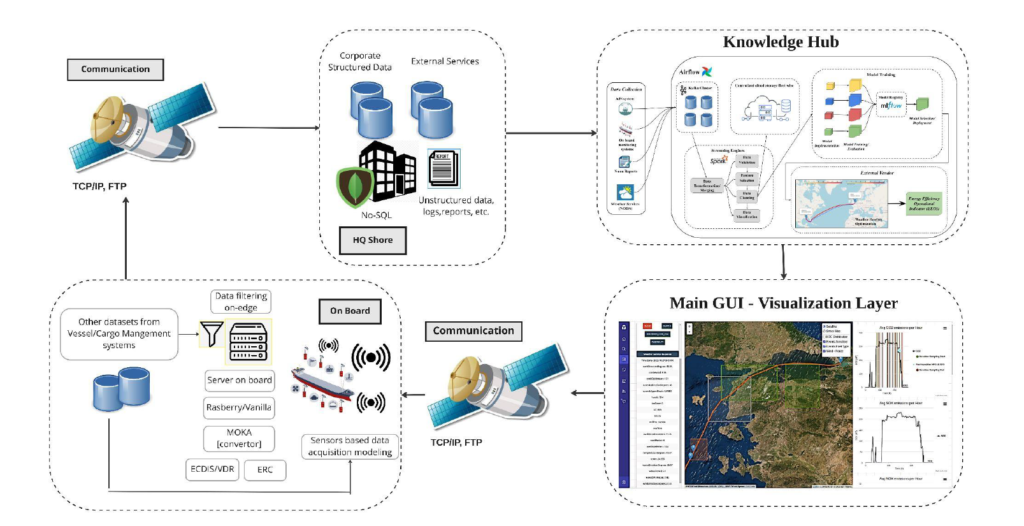Dimitrios Kaklis1,2,4, Takis J. Varelas1, Iraklis Varlamis2 , Pavlos Eirinakis3 ,
George Giannakopoulos4, Constantine V. Spyropoulos4
1. Danaos Research Center, 2. Harokopio University of Athens, Department of Informatics and Telematics, 3. Department of Industrial Management & Technology University of Piraeus, Piraeus, Greece, 4. Institute of Informatics & Telecommunications, NCSR Demokritos, Athens, Greece
7-8 March 2023, Athens GR
From STEAM to Machine: Emissions control in the shipping 4.0 era
2023 Society of Naval Architects and Marine Engineers (SNAME)
The present paper describes that the maritime sector is required to adhere to the IMO 2020 – mandated reduction of emissions. This reduction can be conducted by either using a compliant fuel with lower sulfur content, an alternative fuel (e.g. LNG, methanol), or clean its exhaust gasses with a “scrubber” technology to reduce the output of CO2, NOx and SOx emissions. The objective of this paper is to present a holistic approach to continuously monitor and estimate the emissions of a vessel as well as to assess and improve the efficiency of scrubbers. Furthermore the deployment of a cutting-edge, integrated framework, incorporating the latest technological advances, that can offer the ability to capture, process and analyze vessels’ operational data in order to improve efficiency, sustainability, and rule compliance is presented. Particularly the conceptualization and materialization of a big data application suite that exploits the IoT (Internet of Things) and AI (Artificial Intelligence) advancements and technologies, to employ a “digital replica” of the en-route vessel is demonstrated. By collecting a multitude of features from on-board sensor installments, we present how we can effectively utilize these features, harvested in real time, in order to accurately assess and estimate the environmental footprint of the vessel by employing robust Fuel Oil Consumption (FOC) predictors. Then we describe in detail the streamlined procedure from data acquisition to model deployment, utilizing the proposed big data framework, in order to assess and estimate the emissions during the operational state of the vessel. Finally, we demonstrate experimental results by deploying comparative analysis utilizing operational data from one containership-centric Living Lab (LL) in order to validate and confirm our approaches in terms of accuracy and performance in a real world setting.


